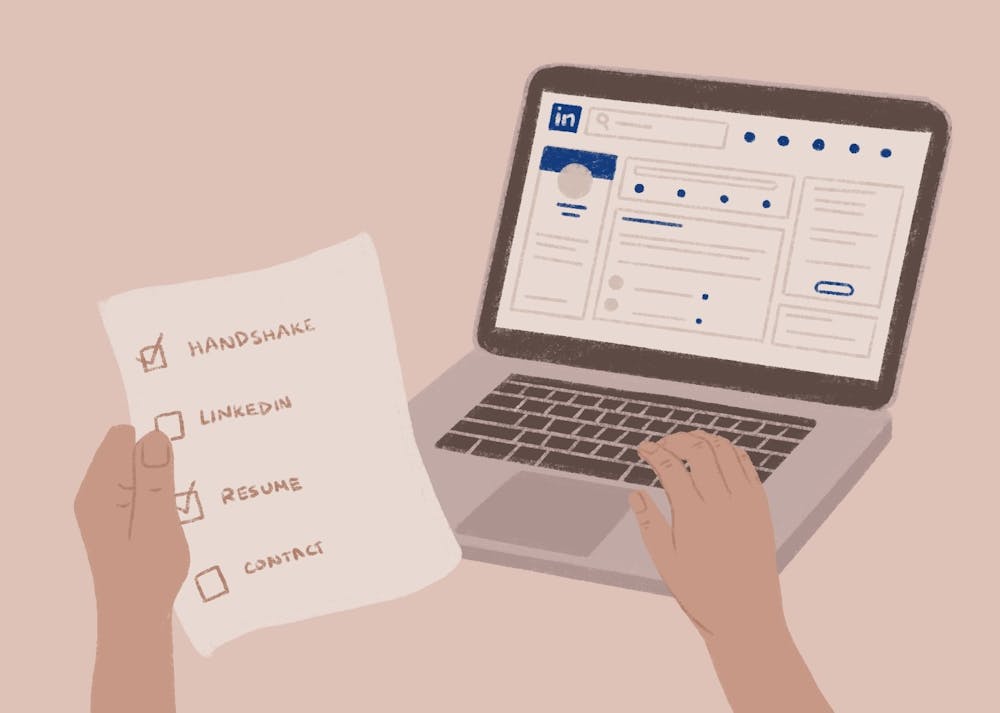Almost every Sun Devil has to fulfill an internship credit to graduate with their degree. However, for some students, finding an internship can come with some challenges.
The Department of Career Services offers a variety of resources to ease students' anxiety about internships, guide students through the internship process and turn it into a career.
Where to start
Beverly Johnson, the senior associate director of Career Services, said the Department of Career Services is the first place students should go to if they are struggling with planning for internships.
The department offers scheduled and walk-in meetings with advisers and is dedicated to helping with the internship process, whether it be fine-tuning a resume or preparing for an interview.
"We are here for the success of each student," Johnson said. "Ask for help. Reach out. ... It doesn't matter what the title is or the department is, folks are here to help."
Students can also visit Handshake for job and internship opportunities. Handshake is a platform designed to help students narrow options to state, industry, or federal, government-based internships or jobs, according to ASU Career Services.
Danielle Zelaya, the director of community placements within the College of Health Solutions, said for students needing to complete a internships for their major, the Student Success Hub is dedicated to helping connect students to different forms of internships.
"We want all students to leave with that practical, real-world knowledge and experience," Zelaya said. "We have internship and experiential learning support coordinators that will meet with and work directly with students to help guide them on their path."
Different types of internships
Although internships are a great opportunity, not all students have the ability to complete one, Johnson said. The Department of Career Services connects students to the different internship options to better-fit schedules so all students can have a chance to gain experience.
"It is a privilege to have the time and the capacity to do an internship on top of your academics," Johnson said. "Our department has done some important work to make sure there are things like job shadowing (and) micro internships and project-based internships."
Johnson said these types of internships were designed to be short-term to help students who cannot commit to 15 to 20 hours a week but can still get experience in their field.
Balancing academics and an internship
With balancing school, an internship and, sometimes, a job, it can be difficult to find the time to complete a full internship, Johnson said.
She said students should "treat getting a job like it is your job" and establish a strategy. She also said she recommends students apply for more than one internship at a time and set goals as to how long or how many applications they work on a week.
"Time management is key," Johnson said. "Time management seems really boring and, to be honest, it's going to be good for your mental health and it's going to help you to achieve those (goals) that are really important to you."
For students who have busy schedules, Johnson said her team partners with academic schools to bring career readiness directly to the classroom.
"Classes are where the students are," Johnson said about reaching students. "We partner as much as we possibly can to bring our career readiness resources and education into classes."
Making it a career
Doing an internship is a great way for students to get a foot in the door and network with companies they might want to continue working for post-graduation, Johnson said.
If students do not end up working for the company they interned for, internships are still a great was for exposure and for future employers to see skills and ability to work in a professional environment, Johnson said.
"If you get people to really value you for your work and the energy that you bring into their organization, they're like more likely to try to find ways to keep you there," Johnson said. "You can increase the chances for (remaining at the company) by showing up and making a positive impact."
Lily Beverly, a junior studying social work, said networking with social workers helped them find an internship.
"(The social worker) helped me out a lot, and I reached out to the hospital he works at," Beverly said. "I think working in the hospital has really given me a hands-on learning experience so I know how to work with clients."
Zelaya said going to on-campus or virtual career fairs can help a student build connections with employers even before applying.
ASU will be hosting a Winter Career Fair on Nov. 19 at the Memorial Union for students to meet and connect with employers from several companies, according to Career Services.
"If you can find a way to make a connection and they can be an advocate for you in the process, that's going to pull your resume out of the pile," Zelaya said. "They're going to have that real connection with you."
This story was updated on Nov. 14 at 1:06 p.m. to include more precise language about the College of Health Solutions clinical internships.
Edited by Senna James, Abigail Beck and Natalia Jarrett.
Reach the reporter at alillest@asu.edu and follow @allylillestol on X.
Like The State Press on Facebook and follow @statepress on X.
Allison is a sophomore studying journalism and mass communication. This is her first semester at The State Press. She has also worked at Arizona PBS and Blaze Radio.




